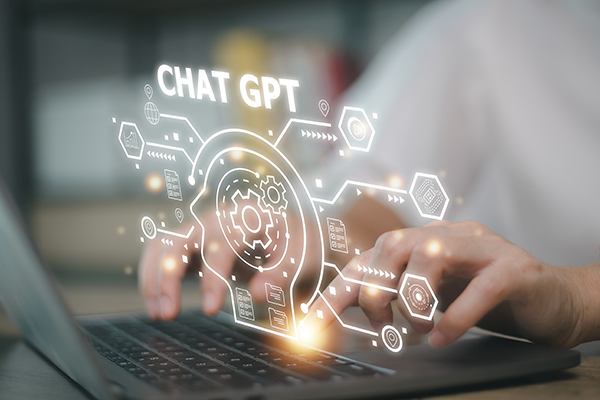In today’s digital age, artificial intelligence (AI) has not only transformed entire industries, but also set a milestone with the development of GPT-4 by OpenAI. Since its launch in March 2023, this billion-parameter behemoth has redefined expectations in Information and Communication Technologies (ICT), delivering significant advances that transcend its predecessors.
Multidimensional advances of GPT-4
GPT-4 not only surpasses in size previous versions such as GPT-3.5, but also introduces multimodal capabilities that open new frontiers in technological applications. One of its most outstanding innovations is the ability to interpret images, allowing the generation of text for captions, the creation of code from diagrams and the description of images for accessibility in web pages.
With more accuracy and the ability to handle complex tasks, GPT-4 has demonstrated remarkable improvements in standardized tests, significantly scaling its performance. These skills not only improve the writing of advanced educational content, but also facilitate the generation of didactic material in technical disciplines such as physics and chemistry.
GPT – 4 in ICT
For professionals and students in the field of ICT, GPT-4 is an indispensable tool. In software development, for example, the model can transform textual descriptions into functional code, speeding up the prototyping and application creation process. Furthermore, in academic research, GPT-4 facilitates the synthesis of complex information and the efficient writing of scientific articles, improving productivity and optimizing resources.
GPT-4’s multilingual capability, which supports 26 languages since its launch, extends its usefulness in a global context. This enables international companies and projects to communicate and generate content in multiple languages, strengthening collaboration and innovation in ICT worldwide.

Challenges and ethical issues
Despite its advances, GPT-4 is not without significant challenges. A key concern is its tendency to generate unverified information, which can compromise accuracy and reliability in critical applications such as academic research and data-driven business decision making. As such, human oversight remains crucial to ensure the integrity and relevance of the generated content.
Furthermore, while GPT-4 is capable of producing content with surprising fluency, it lacks the discernment and contextual understanding that humans naturally bring to writing and communication. This subjective aspect is critical in contexts where accurate interpretation and adaptability are essential.
The promising future
As GPT-4 continues to evolve and adapt to new challenges, it is essential to take a balanced and critical approach to its integration into education and the professional ICT field. Combining its potential with human expertise and other complementary AI tools ensures a more effective and ethical use, driving innovation and quality in technological solutions.
In summary, GPT-4 represents a significant advance in the application of artificial intelligence in ICT, offering powerful tools that are redefining how professionals and students approach the technological challenges of the 21st century. With unprecedented capabilities to generate text, interpret images, and support advanced research, GPT-4 establishes itself as a cornerstone in the present and future of the digital landscape.
This article has explored the various dimensions of GPT-4, from its technical innovations to its ethical implications, highlighting both its promises and challenges. By understanding the potential of this technology and its limits, we can move toward more responsible and effective use in the global educational and professional ICT landscape.
Continue your professional education
For those interested in taking their understanding and application of information and communication technology to the next level, our institution offers a Master in Strategic Management with a specialty in Information Technology. This program is designed to equip students with the skills necessary to lead in a digital environment driven by advances such as GPT-4. Through courses that integrate strategic management with the latest technological innovations, students will not only learn how to optimize the use of tools such as GPT-4 in business and academic environments, but will also develop a deep understanding of the ethical and practical challenges facing the adoption of emerging technologies.
Sources:
What is GPT-4o, the new AI model unveiled by OpenAI, and how is it different from GPT-4.
6 ways to use GPT-4 in your enterprise in 2023
GPT-4: What It Is, How It Works, and What Its Limitations Are

